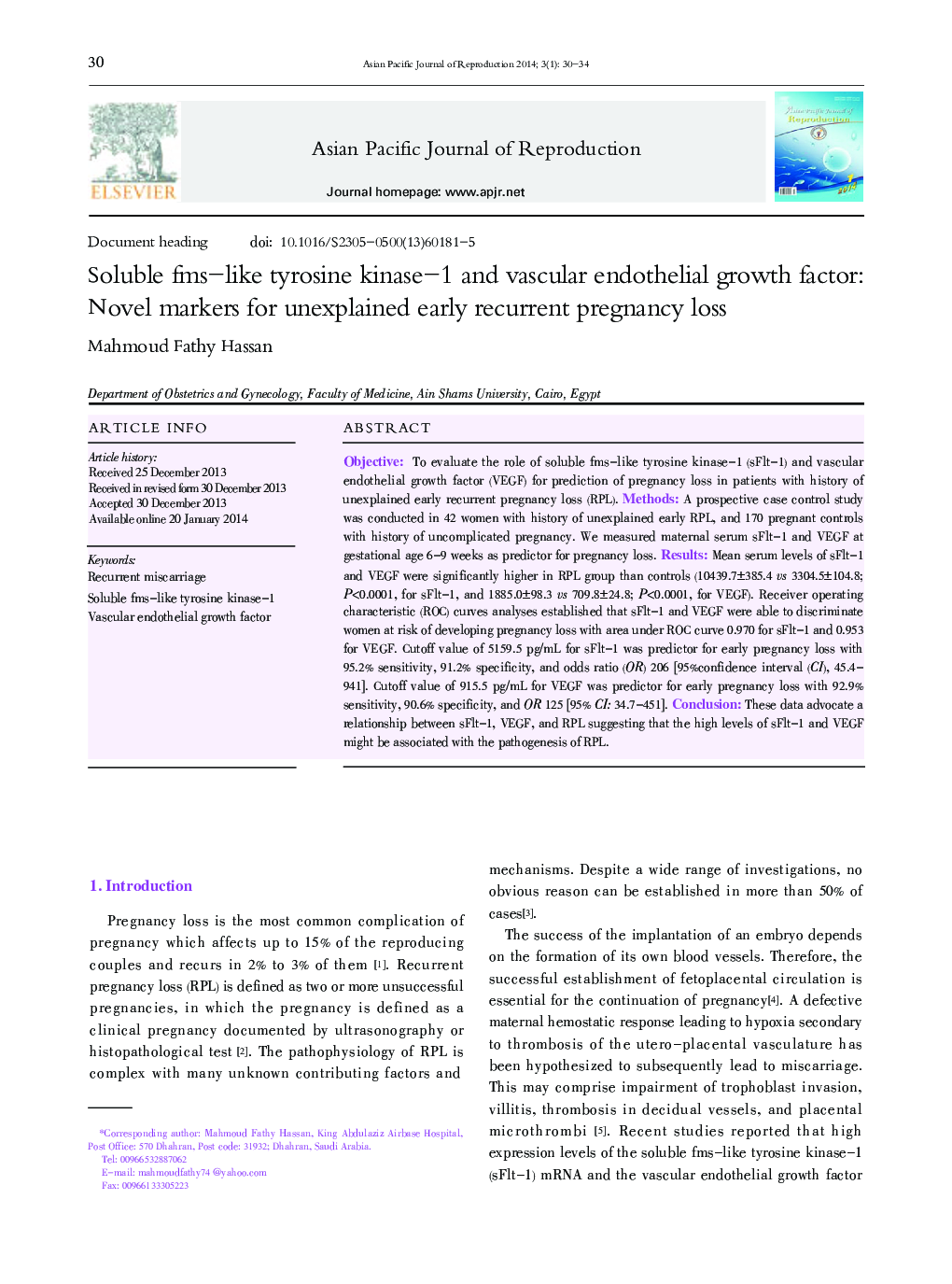| Article ID | Journal | Published Year | Pages | File Type |
|---|---|---|---|---|
| 3453627 | Asian Pacific Journal of Reproduction | 2014 | 5 Pages |
ObjectiveTo evaluate the role of soluble fms-like tyrosine kinase-1 (sFlt-1) and vascular endothelial growth factor (VEGF) for prediction of pregnancy loss in patients with history of unexplained early recurrent pregnancy loss (RPL).MethodsA prospective case control study was conducted in 42 women with history of unexplained early RPL, and 170 pregnant controls with history of uncomplicated pregnancy. We measured maternal serum sFlt-1 and VEGF at gestational age 6–9 weeks as predictor for pregnancy loss.ResultsMean serum levels of sFlt-1 and VEGF were significantly higher in RPL group than controls (10439.7±385.4 vs 3304.5±104.8; P<0.0001, for sFlt-1, and 1885.0±98.3 vs 709.8±24.8; P<0.0001, for VEGF). Receiver operating characteristic (ROC) curves analyses established that sFlt-1 and VEGF were able to discriminate women at risk of developing pregnancy loss with area under ROC curve 0.970 for sFlt-1 and 0.953 for VEGF. Cutoff value of 5159.5 pg/mL for sFlt-1 was predictor for early pregnancy loss with 95.2% sensitivity, 91.2% specificity, and odds ratio (OR) 206 [95%confidence interval (CI), 45.4–941]. Cutoff value of 915.5 pg/mL for VEGF was predictor for early pregnancy loss with 92.9% sensitivity, 90.6% specificity, and OR 125 [95% CI: 34.7–451].ConclusionThese data advocate a relationship between sFlt-1, VEGF, and RPL suggesting that the high levels of sFlt-1 and VEGF might be associated with the pathogenesis of RPL.
